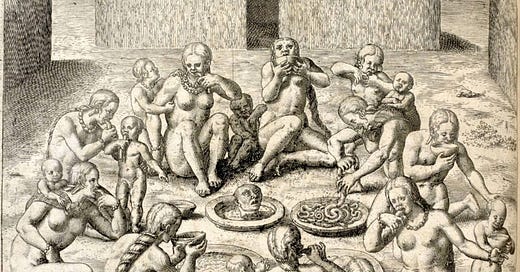There is…a lot to say about the social history of cookbooks. Since cookbook history is social history, just as food history is not just about the experience of eating solo but, as a history, becomes the story of eating, cooking, thinking, sharing, producing, etc. as a collective.
In cookbooks, we see the interplay between the individual and the collective: And the many ways that the small, everyday acts that make up our lives are informed by, and inform, the larger world.
In today’s issue of the culinary memories series, I’m sharing insights about several aspects of the social history of cookbooks, including desire (building on last week’s issue), as well as how food and eating practices in not-cookbooks also serve to other and degrade, or uplift and venerate, their subjects.
Through depictions of everything from cannibalism to royal banquets, the social history of food writing and cookbooks casts a light on how we use these mediums to reflect and challenge social norms.
Keep reading with a 7-day free trial
Subscribe to Root: Historic Food for the Modern World to keep reading this post and get 7 days of free access to the full post archives.




